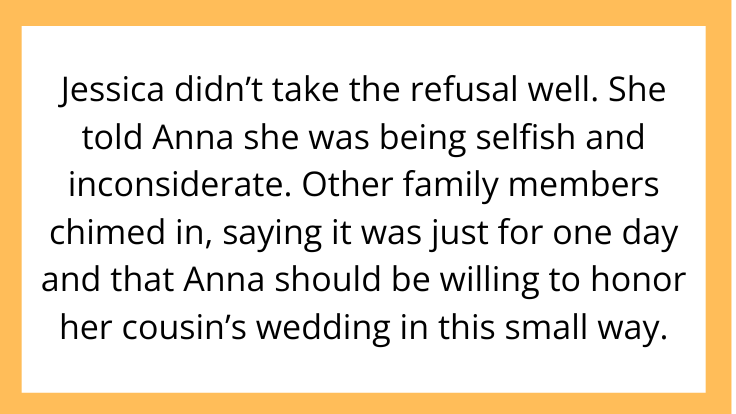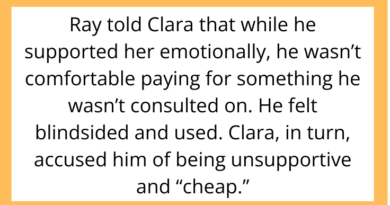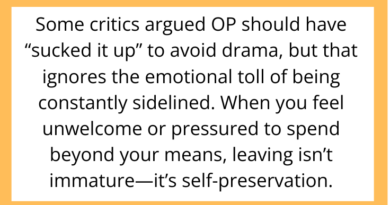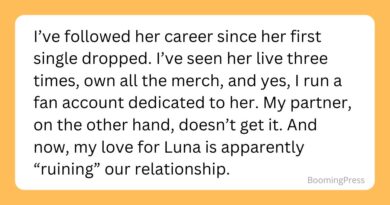AITAH for Refusing to Give My Cousin My Late Mother’s Jewelry?
When it comes to family heirlooms, emotions run deep. They aren’t just shiny pieces of metal or precious stones—they hold memories, meaning, and the invisible threads that connect generations. But what happens when someone else in the family thinks they’re entitled to what’s yours? In today’s AITAH scenario, a grieving daughter is being pressured to hand over her late mother’s jewelry—and the internet can’t agree on who’s in the wrong.
Let’s explore this complicated situation.
The Story: Grief, Sentiment, and Family Expectations
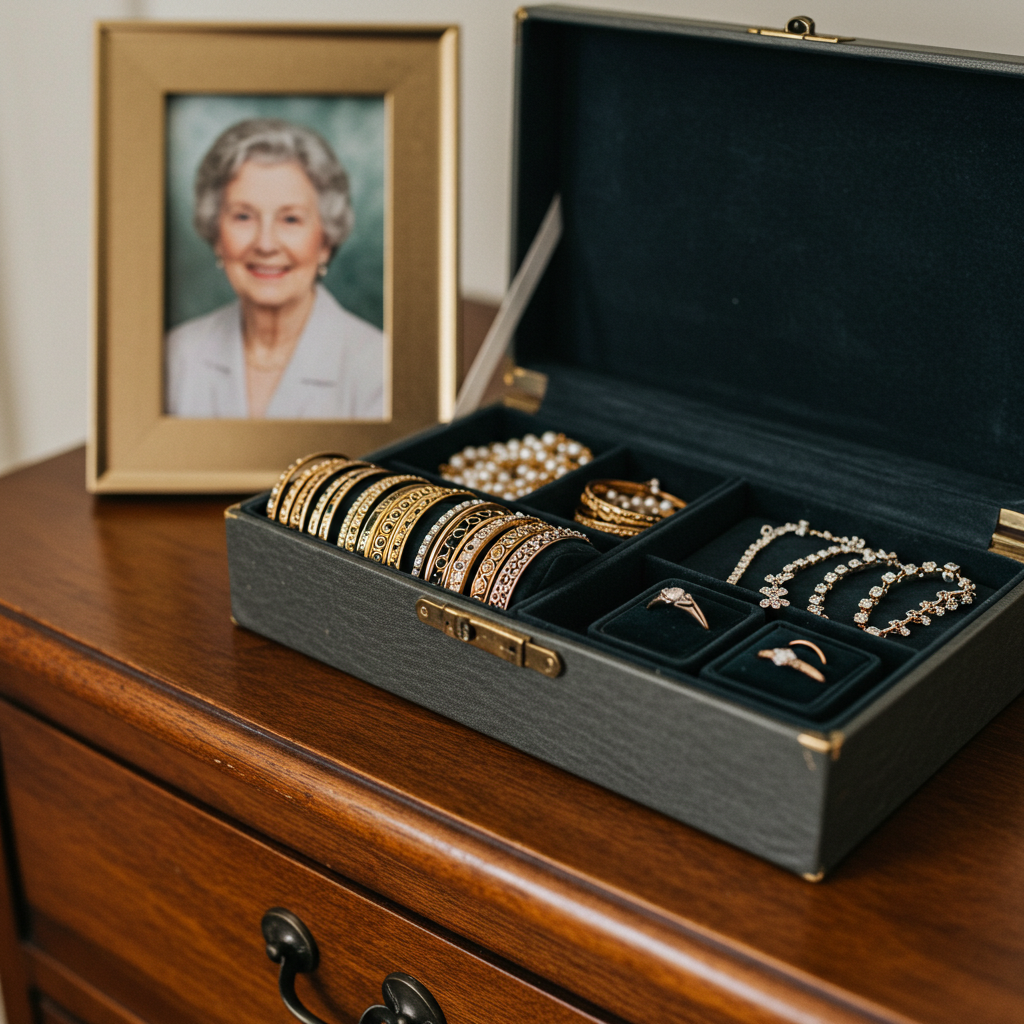
The original poster—let’s call her Anna, age 29—shared on r/AITAH that her mother passed away last year after a long illness. In her will, her mother specifically left Anna her collection of jewelry: a few gold bangles, a delicate diamond necklace, and her wedding ring.
Anna and her mother were very close. She’s kept the jewelry safe in her bedroom, occasionally wearing pieces to feel connected to her mom.
Recently, Anna’s cousin, Jessica, got engaged. At a family dinner, Jessica pulled Anna aside to ask if she could borrow the diamond necklace for her wedding day. She explained that she’d always admired it and felt it would be a special “something borrowed.”
Anna politely declined, explaining that she isn’t ready to part with the jewelry, even temporarily. It still feels too raw and personal.
That’s when things escalated.
The Conflict: A Request Turns Into a Demand
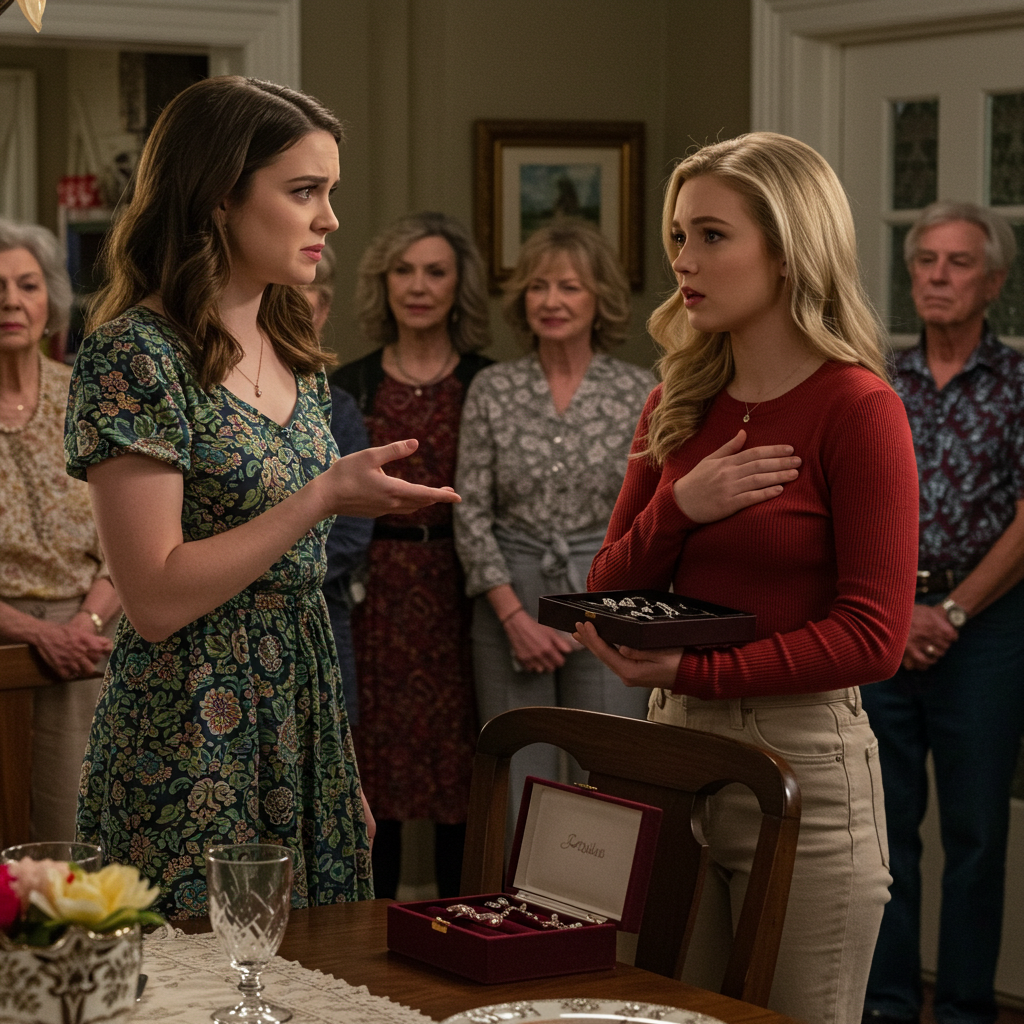
Jessica didn’t take the refusal well. She told Anna she was being selfish and inconsiderate. Other family members chimed in, saying it was just for one day and that Anna should be willing to honor her cousin’s wedding in this small way.
Anna held her ground. She said her mother’s jewelry wasn’t a communal family asset—it was hers, and she wasn’t comfortable sharing it.
Word spread quickly, and soon Anna was receiving angry texts from relatives accusing her of “hoarding” sentimental pieces that everyone loved. Some even suggested that her mother would have wanted Jessica to feel included on her special day.
Anna wrote to Reddit wondering: AITAH for refusing to lend my late mother’s jewelry, even though it would mean a lot to my cousin?
The Arguments: Is Anna Wrong to Say No?
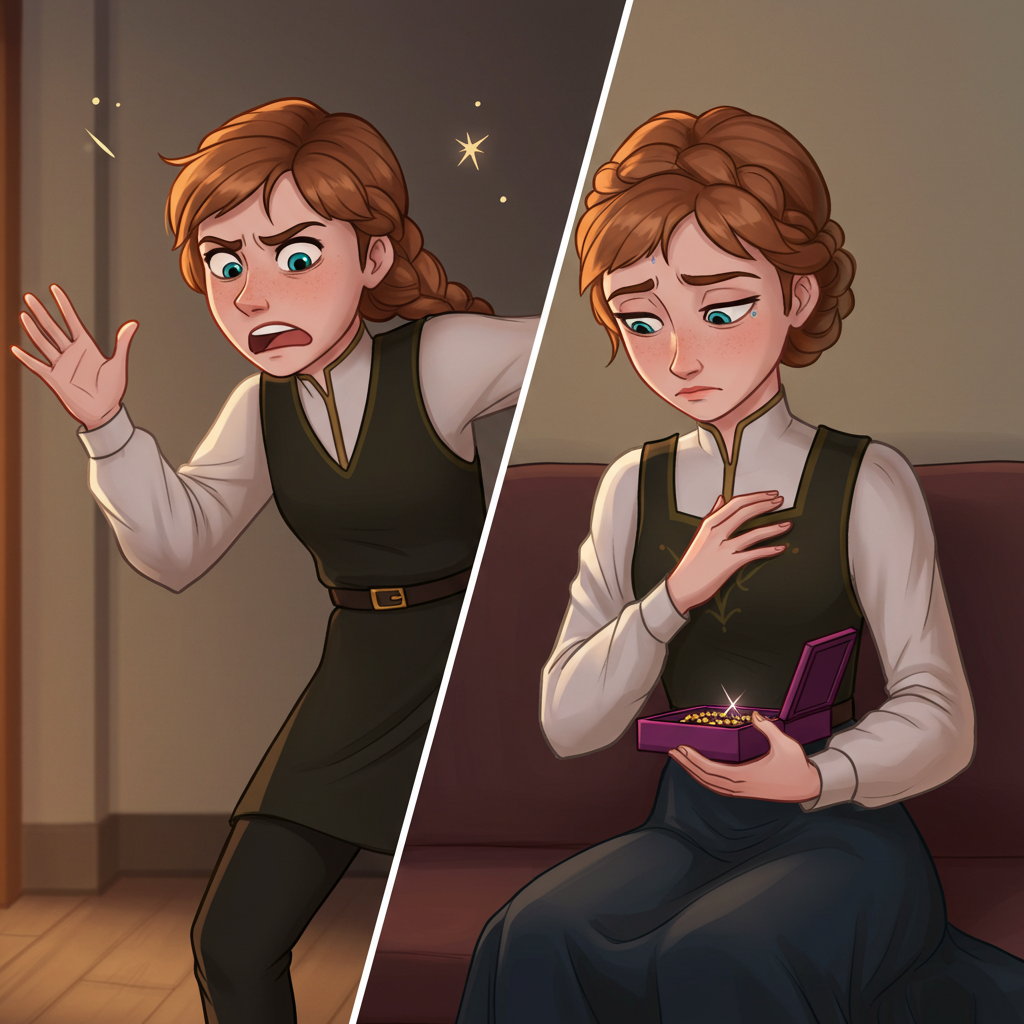
Why Some Think Anna Is the Villain
-
Family First Mentality: In many families, heirlooms are shared for weddings and major milestones.
-
Sentiment for All: Other relatives may also have emotional connections to Anna’s mother.
-
Temporary Loan: Jessica wasn’t asking to keep the necklace—just to borrow it for one day.
From this perspective, Anna’s refusal looks like she’s prioritizing her feelings over family unity.
Why Others Think Anna Is Absolutely Right
-
Boundaries Matter: Just because something belonged to a loved one doesn’t mean everyone is entitled to it.
-
Fresh Grief: Anna is still processing her mother’s death.
-
Ownership is Clear: The jewelry was explicitly bequeathed to Anna alone.
Many in the subreddit agreed that the pressure tactics were manipulative, and that no one has the right to demand access to someone else’s possessions—especially something so personal.
The Bigger Issue: Grief and Entitlement Collide

This isn’t just about a necklace. It’s about how grief affects families, and how entitlement can show up when people feel they deserve a piece of someone else’s legacy.
For Anna, the jewelry is a tangible connection to her mother—a source of comfort and continuity. For Jessica, it might feel like an important gesture of family inclusion. The real problem is that Jessica didn’t take no for an answer, and rallied others to guilt-trip Anna into compliance.
When someone sets a boundary, respecting it is non-negotiable.
What Should Happen Next?

Ideally, Anna could have a calm conversation with Jessica, explaining again how personal this is and reassuring her it’s not about a lack of love or support. But if Jessica—and the rest of the family—can’t accept Anna’s decision, that’s not Anna’s responsibility to fix.
The truth is simple: no one should be forced to give away or lend something precious just because it’s convenient or meaningful for someone else.
Takeaway: You’re Not Always the Villain for Saying No

This AITAH situation resonates because it captures a dilemma so many people face—where does generosity end, and where do healthy boundaries begin?
Saying no doesn’t make you selfish. It makes you a person who knows your limits and honors your own grief.
And if your relatives can’t accept that, it says more about them than it does about you.
